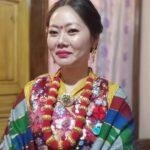
Sandhya Subba (Singzango)
Sandhya Subba, a post graduate in History from University of Delhi, is an author of two books viz. Limbu Shamans, the directory of Limbu Shamans in Sikkim and Chaiit Mundhum, Mundhum of Creation.
Tumyehang is the supreme administrative organisation of the Limbu community, in existence since time immemorial and finding mention in Limbu Mundhum.
Limbu/Yakthung, one of the autochthonous tribes, has its own distinct culture, traditions, and religious beliefs. Limbus are scattered throughout the different parts of the world like Sikkim, West Bengal, Assam, Meghalaya, Manipur states of India; Bhutan, Nepal, United Kingdom, Singapore, Japan, Korea, United States of America, Hong-Kong, Myanmar etc.
Limbus have a long tradition of narrating or reciting Mundhums, performing certain rituals, and observing ceremonies in their own distinctive ways.
Every community has its own customs and traditions that guide it. Limbus follow their own customary laws and traditional practises. Tumyehang is the supreme administrative organisation of the Limbu community, in existence since time immemorial and finding mention in Limbu Mundhum.
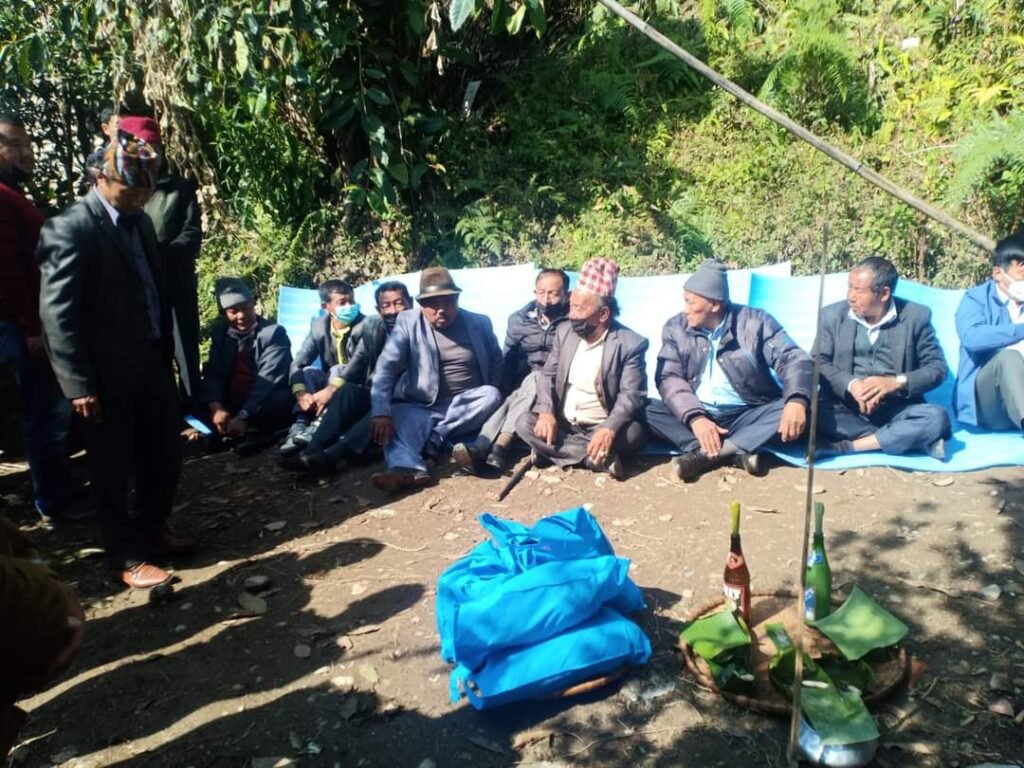
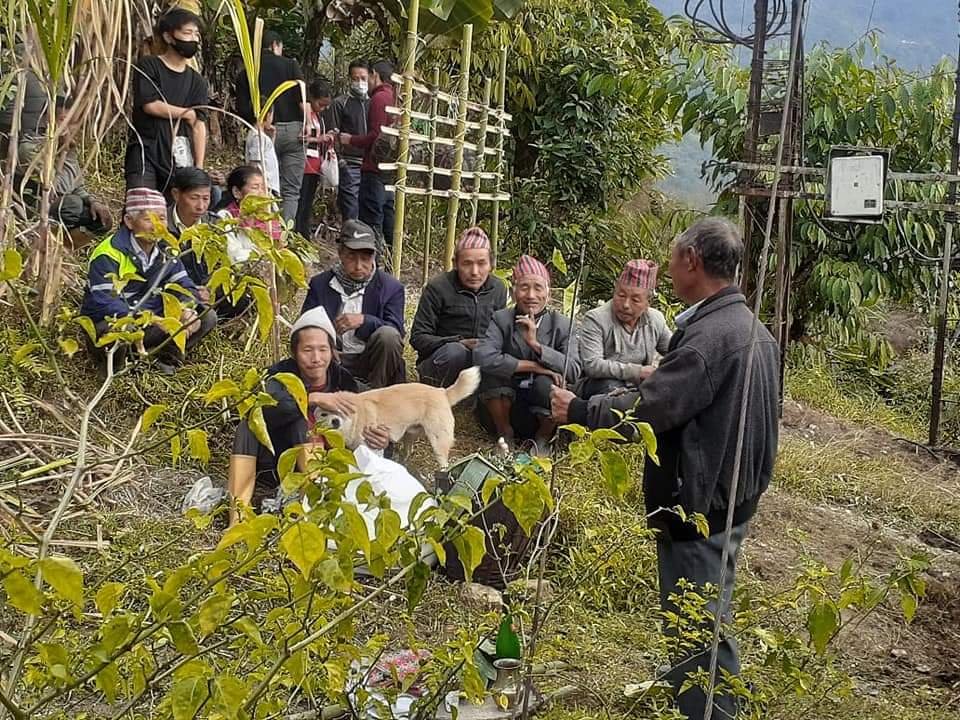
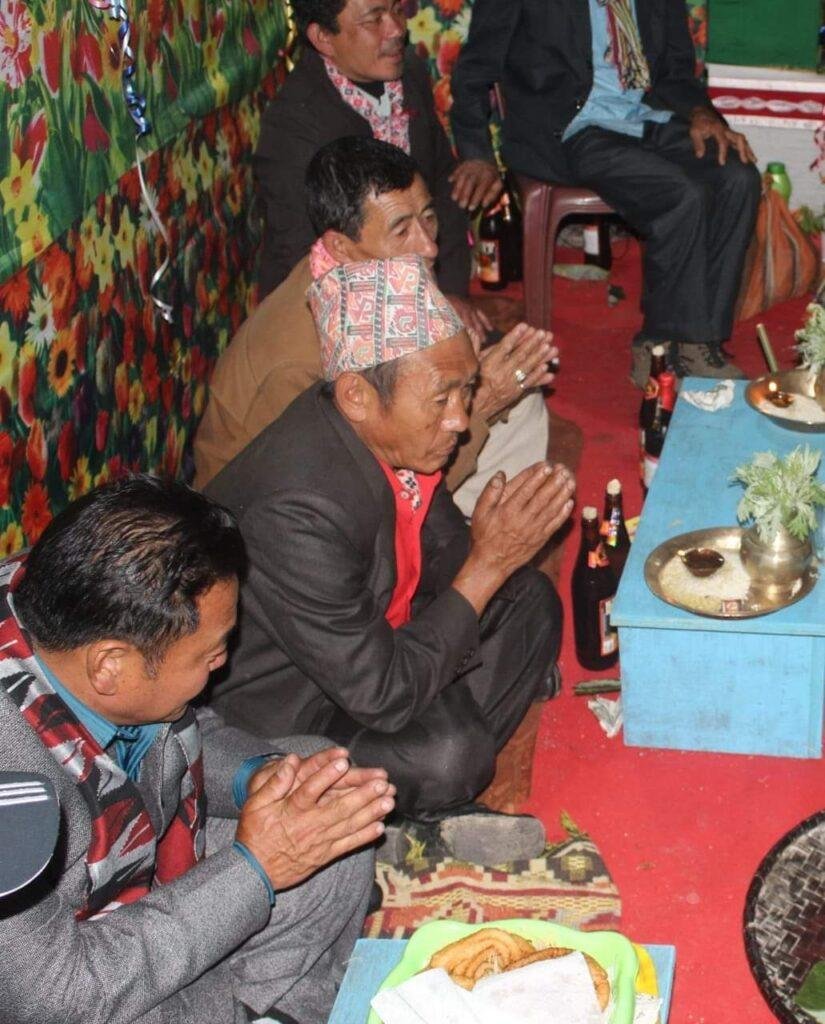
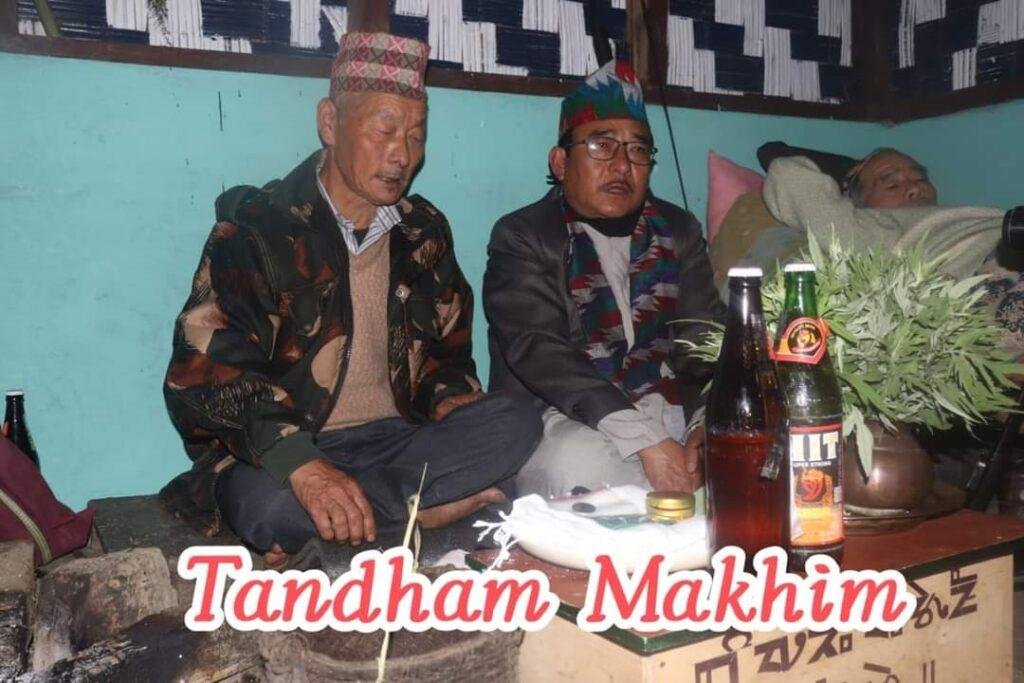
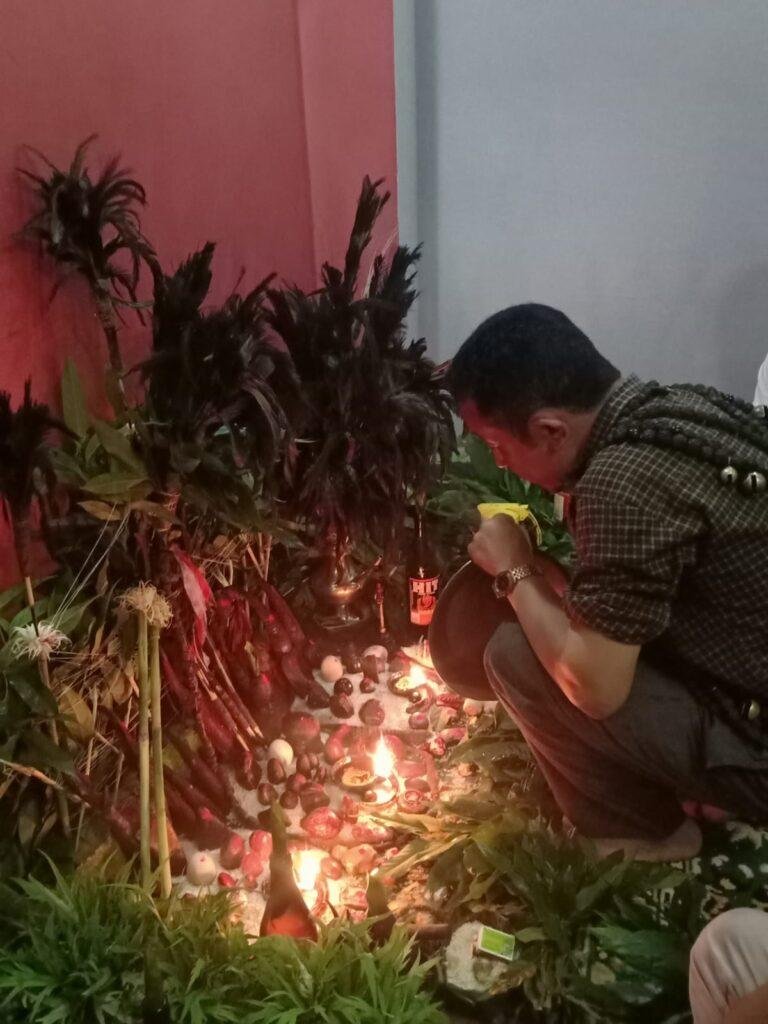
TUMYEHANGS: WHO ARE THEY?
- They are the notable, elders, respected, wise men and resource people in the Limbu community.
- They are the socio-religious body consisting of community elders. They are people who must be well acquainted with Mundhum and customary knowledge.
- Limbu Mundhum says, the Limbu people used to arrange meetings (Chumlung) to discuss on various issues and solve many problems. They use to work via work divisions. Later, they began to be called the sons of the soils, LUNGBONGNA KHAMBONGBA. In this way, the people, who bear responsibilities in the society, are recognized as Tumyehang too.
- They are an institution within the community. They call for the Chumlung/Sabha/council regarding the judicial works and to discuss many important issues in the community. Till today, Tumyehangs are present in our community to settle the disputes related to marriages, wedding ceremonies, death rituals mandatorily in all rituals and customs of the Limbus.
- They play an important role during death rituals such as YUMSA (touching salt and oil), and KHA?OMA (death rituals).
- Tumyehangs used to play judicial roles in disputes based on property, household shares, distributing land among siblings, land border disputes and determining areas of lands.
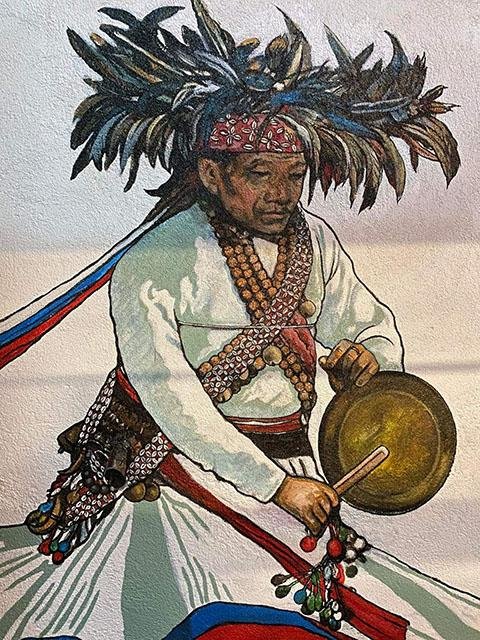
FEW EXAMPLES OF RITUALS WHERE THEIR ROLE ARE IMPORTANT
- CHOKPHUNG: It is a process to adopt a person from an outside community in order to include him/her in one’s lineage in the Limbu Community.
- SHASING LAPMA: It is a process of adopting child. Tumyehang has a great role in this process to authenticate and witness the adoption process.
- KA?AI SODHOK: It is an incestuous relationship or marriage. An invalid marriage/ wedding within siblings, relatives or blood lineages. Such kind of marriage/relationship is considered illegal in Limbu Community. Tumyehang do hear such cases and decide the punishments for such act.
- MEKKHIM: They have a very important role in wedding rites. Limbu Shamans conduct LAGAN (wedding rite) under the presence and guidance of Tumyehangs during the wedding ceremonies in Limbu Community. They are the ones who guide and check the work of phedangma, Samba and Yebas in our community.
These days, we see diminishing roles and respect given to our TuTu Tumyehang. Our Tumyehang system is getting weak due to less importance and encouragement given to this system. Our ritual works remain incomplete in the absence of Tumyehang. He is in charge of both rites and judicial matters.
There are many incidents in Mundhum highlighting the role of Tumyehang and how they took the decisions coming from Almighty Tagera Ningwaphumang.
Here are two examples given below:
- Tumyehangs punishing the evil sun, LASHARA THENAMYAMBA, in order to provide the people with justice.
- Story of SODHUNGHANG LEPMUHANG and TETLARA LAHADONGNA.
Today, our Tumyehang system needs more attention and importance. All Limbu scholars need to initiate more detailed study, learning, and research on it. Restoration of the Tumyehang system in the Limbu community opens doors and provides scope for further research and exploration on Limbu culture, ancient knowledge, customs, and Mundhum. Our Tumyehang system needs to be more organised, systematic, strong, and reinstated in every Limbu village. This will develop consciousness and unity among the Limbus. It will help us to make our customs and rituals general and common despite geographical constraints, which could be followed by all the Limbus worldwide.
Sources:
- Amrita Thebe, Tumyang Judiciary system in Limbu Community (A Customary Law)
- Bal Muringla, Limboo Marriage: The primitive way
- Chaitanya Subba, The Culture and Religion of Limbus
- Arjun Mabuhang, Limbu Jatiko Mundhum Ra Itihas
- Anjana Subba, Dissertation on Tumyang Judiciary System in Limbu Community, Department of Peace and Conflict Studies and Management School of Science, Sikkim University



